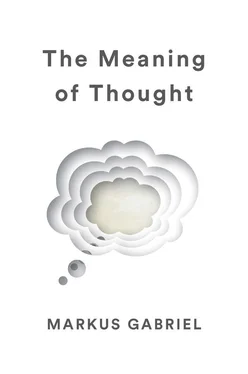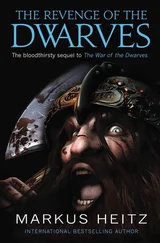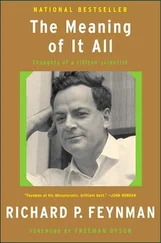Today, as in all ages in which our species has graced the Earth, the human being itself is at stake, and, with it – due to the sheer technological power it wields – the continued existence of life on our planet. Philosophy can only face up to this challenge by developing new tools and thought models, with the help of which we can come to a greater knowledge of reality. Today, philosophy is a form of resistance against the lie of a ‘post-truth’ age. For philosophy is opposed to the senseless assertion of alternative facts, to conspiracy theories and ungrounded apocalyptic scenarios, lest all these get out of control and the not too distant future does in fact witness the end of humanity.
I will therefore be arguing in what follows for a contemporary, enlightened humanism – a humanism that defends the intellectual and ethical capacities of the human being against our post- and trans-humanist despisers.
A chief aim of this trilogy is to introduce the fundamental theoretical commitments of New Realism to an audience beyond the walls of the academy. New Realism is my proposal for overcoming the basic intellectual errors to which we continue to succumb, much to the harm of our society and our own humanity. A particularly insidious member of this set is the rampant ‘fear of truth’, to quote Hegel, that characterizes our age, or the ‘fear of knowledge’ that the American philosopher Paul Boghossian (b. 1957) diagnosed in his own critique of the errors underlying postmodernity. Among these are the conceits that there is no truth, no objective facts or objective reality. 4
As I said, I will not be presupposing any knowledge of the previous two books of the trilogy. Each of these can be read as a more or less stand-alone work. In the few places where it might be necessary, though, I will repeat some of the ideas introduced in the previous books so that the reader has a fully adequate picture of the overall intellectual terrain being covered.
The principal function of philosophical books is to provoke the reader to think for herself. What we can learn from philosophy is how to get in view and then reflect upon our prejudices and unspoken assumptions concerning the essential questions of humanity, such as What or who are we as human beings really? What distinguishes us from other animals? Or: Can computers think?
At the end of the day, it isn’t so important whether I can convince you of my own positions. What matters is nothing but the truth. And since it’s not so easy to ascertain the truth purely through the self-exploration of human thought, there will always be differences of philosophical opinion. Believing that we could somehow answer our questions once and for all would therefore amount to a fundamental error. Instead, the crucial thing is to set our thinking in motion, so that we can open up new forms and fields of thought.
As we’ll see in due course, I take it to be a decisive criterion of reality that we can get it wrong. And because thought itself is something real, we’re not somehow immune from error when we tackle the question of what exactly it is. Thinking about thinking is no easier or less likely to lead to mistakes than thinking about any other part of reality. Though, needless to say, I’m fairly convinced that my own answer is correct, else I would hardly bother to set it out here.
To unravel the meaning of thought, I will introduce you to the notion that there is an actual sense of thought. The key thesis of the book says that our thought is a sense, just like sight, taste, hearing, feeling or touch. Through thinking, we touch a reality accessible only to thought, just as colours are usually accessible only to sight and sounds to hearing. At the same time, I argue the case for giving our thought a new meaning, in the sense of a new direction. I want to provide orientation in an age in which – as in all ages before it – we find our thinking thrown into confusion by a multitude of ideological currents and their propagandists. Just think of the thoughts you’ve recently had about Donald Trump! Was it really sensible to have had all of these? Isn’t it precisely one of the traps laid by Trump’s savvy media strategy that we spend so much time talking about the ever-swelling tide of scandals that engulf him?
As inhabitants of the infosphere – our digital environment – we are exposed to a relentless flood of information. This presents philosophy with new challenges. This book represents an attempt at sustained reflection on what thought really is, so that we might regain some form of control over the terrain currently occupied by the dubious magicians of Silicon Valley and their technophile adepts, who ostentatiously insist that they have created genuine artificial intelligence. We need to demystify and disenchant our gadgets and do away with the belief in their omnipotence. Otherwise, we condemn ourselves to a future as mere victims of digital transformation, hopeless info-junkies or brain-dead techno-zombies.
1 1. Immanuel Kant, Lectures on Logic, ed. and trans. J. Michael Young (Cambridge: Cambridge University Press, 2004), p. 537 (9:23).
2 2. Ibid.
3 3. Ibid.
4 4. G. W. F. Hegel, The Phenomenology of Spirit, trans. Terry P. Pinkard (Cambridge: Cambridge University Press, 2018), p. 50 (§74); Paul Artin Boghossian, Fear of Knowledge: Against Relativism and Constructivism (Oxford: Clarendon Press, 2007).
The human being is the animal that doesn’t want to be one. This is because, at some point or other, it began to wonder who or what it really is. Insofar as we have an implicit or explicit image of ourselves as human beings, we also make claims about the nature of the good life. Ethics *is the discipline that asks what a good life looks like. It is therefore based upon anthropology, the discipline tasked with figuring out what precisely distinguishes the human both from other animals and from the lifeless expanses of the inanimate universe. 1
Our image of the human being is closely intertwined with our values. A moral valueis a yardstick for human behaviour. It distinguishes between actions that ought to be performed – the good ones – and those that ought not to be carried out – the bad, morally deficient ones. Every value system should also have room for actions that, at least in most cases, are neither good nor bad (driving on the left-hand side of the road rather than the right-hand side, twiddling your thumbs, taking a deep breath, buttering bread, and so on), as well as for actions that are utterly unacceptable – that is, evil (torturing of children, for example, or poison gas attacks on civilian populations).
Not every morally wrong action is automatically evil, because not all morally wrong action causes far-reaching harm to the value system itself – think of those occasional white lies told to protect a friend or of cheating at a board game. Evil, by contrast, completely undermines the value system in which it arises. Thus, the prototypical sadistic totalitarian dictator, of which the previous century has provided us with all too many examples, subverts his own value system. Unable to trust anyone or anything, he has to create a total surveillance apparatus.
For as long as we remain mired in deep uncertainty as to who or what we are as human beings, we will not be able to calibrate our value systems properly. If the very nature of the human is in question, ethics too is at stake. This doesn’t mean, I hasten to point out, that other living beings (including plants) or even lifeless, inanimate matter are morally irrelevant – far from it. But, in order to determine what we owe both to ourselves and to the rest of the reality we affect, we have to ask ourselves the question of who we really are and, in the light of the truth of who we are, who we want to be in the future. 2
Читать дальше










